Iran Relies On Much Higher Tax Collection To Raise Money
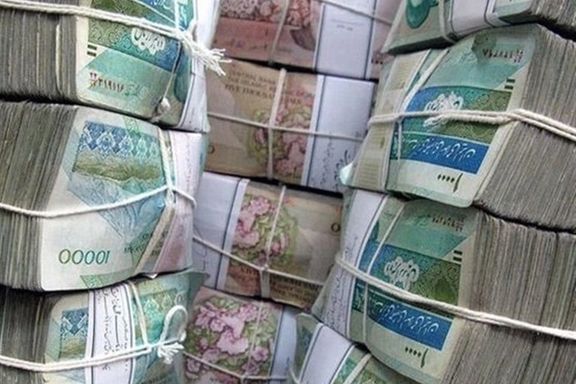
A top official of Iran’s tax administration says that tax collection this year has increased by 55 percent, as the government resorts to domestic revenue sources.

A top official of Iran’s tax administration says that tax collection this year has increased by 55 percent, as the government resorts to domestic revenue sources.
United States sanctions on oil exports, Iran’s main source of income, continue with Tehran shipping half as much oil as in the pre-sanction era and selling the oil at a steep discount.
Mojtaba Amiri a top official of tax administration was quoted by the official government news website IRNA as saying that in the first 10 months of current Iranian year, 3,880 trillion rials of all types of taxes have been collected. This would be in the range of $12-13 billion depending on how the exchange rate is calculated.
The government decided last year to boost tax revenues to offset its large chronic budget deficit in the absence of oil sufficient oil income. Iran needs around $50-60 billion in oil exports to balance its budget. Official figures indicate $37 billion of exports, while the reported steep discounts Iran offers to entice buyers cast doubt on the figure.
Amiri said that about two-thirds of tax revenues came from direct taxes, meaning income and business taxes and one third form “indirect taxes”, which could mean import, export and sales taxes.
He also claimed that tax collection targets were met by 113 percent, but earlier reports indicted a 60-percent tax collection success.
Amid a serious economic crisis, more taxes mean an additional burden on citizens and businesses, while major economic enterprises controlled by regime insiders are legally exempt from taxes.
Next years budget starting March 21 relies even more heavily on tax income.
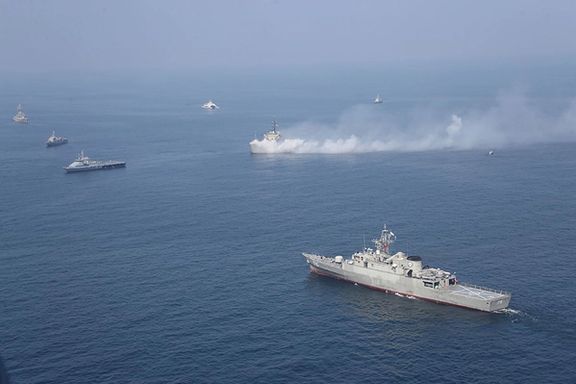
Brazil postponed the request of two Iranian warships to dock in Rio de Janeiro in January, under pressure from Washington, Reuters has said in an exclusive report.
The decision came at a time when Brazilian President Luiz Inacio Lula da Silva was planning his trip to Washington to meet President Joe Biden, sources told Reuters.
On January 13, Brazil granted permission for the IRIS Makran & IRIS Dena ships to dock in Rio's port during January 23-30, according to a post in the official government gazette.
That window has been scrapped, with the ships now authorized to dock between February 26 and March 3, the Brazil's foreign ministry said.
In the meantime, Iranian state media was presenting the scheduled docking of the two ships as a sign of Islamic Republic’s power and influence in America’s backyard.
A US official with direct knowledge of the situation said the prospect of Iranian warships in Rio ahead of Lula's meeting with Biden on Friday "was something unpleasant we wanted to avoid."
"There were a lot of behind-the-scenes conversations about this at many different levels," the official said, adding it was good news that the dates would no longer coincide.
A Brazilian military source confirmed that the federal government, via the foreign ministry, had shifted the dates and blocked the Iranian ships from docking.
"It's true that there was a veto (from the government)," said the source, speaking on condition of anonymity. "The Iranian ships could not come during this period."
Diplomacy with Iran was one of the policies of Lula's previous presidential mandate, and he has declared neutrality in the Ukraine conflict.
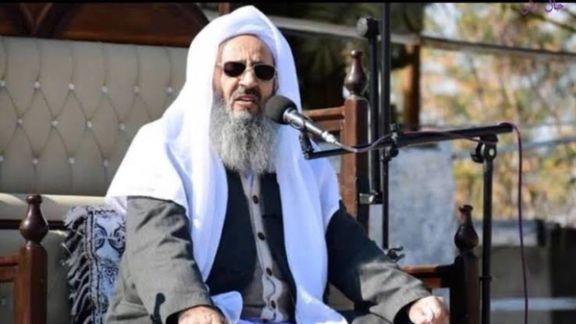
Reactions are still pouring in to the proposal by Iran’s former premier-cum-opposition figure Mir-Hossein Mousavi for constitutional change through a referendum that could end in regime change.
In comments on Thursday, outspoken Sunni religious leader Mowlavi Abdolhamid praised Mousavi’s proposal and described it as the result of his understanding about the realities of society, demanding that other politicians see these realities.
“With his recent statement, Mousavi showed that he understood the realities of society. It's time for other politicians and ulema (religious scholars) to think about saving the country and see the facts,” he said. In November, the top Sunni cleric himself had called for an internationally monitored plebiscite, saying that by killing and repression the government cannot push back a nation.
Abdolhamid also criticized over a decade of house arrest imposed on Mousavi, his wife Zahra Rahnavard, and Former Parliament Speaker Mehdi Karroubi, calling it an example of the Islamic Republic’s injustice.
Mousavi and Karroubi both were presidential candidates in 2009, when a highly disputed vote count gave the presidency to Mahmoud Ahmadinejad triggering large popular protests that became known as the Green Movement. Eventually, both Mousavi and Karroubi were put under house arrest in 2011.
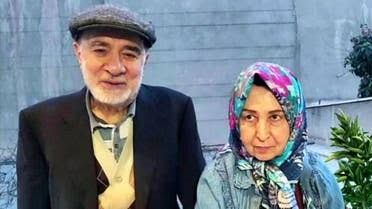
Referring to the regime’s violent crackdown on protesters, Mousavi said in his statement that such events have “demonstrated major truths for the nation.” The rulers of the Islamic Republic are not willing “to take the smallest step to meet the demands of the people.” Iran needs a“fundamental change” based on “Woman, Life, Freedom” and constitutional change, he said earlier in the month.
The leader of the Green Movement is known as a staunch reformist, or someone who believes the Islamic Republic can be reformed to become a more democratic and tolerant polity. But Mousavi’s statement rejected reform as a viable alternative, urging fundamental change, a new constitution and a constitutional assembly. Although he did not openly call for regime change, but his demands, if implemented, could lead to a new and democratic political system.
Mousavi in his statement implicitly repeated what exiled Prince Reza Pahlavi has been saying for years, and other opposition activists have echoed in the past five months – transition from the Islamic Republic.
Abdolhamid who has become an outspoken critic of the regime, has stopped short of calling for a new system of government, but endorsing Mousavi’s statement clearly aligns him with political forces that believe the people should be given a chance to decide what kind of government they want.
The 2009 Green Movement leader’s rejection of the reform option in the Islamic Republic has been met with admiration and antipathy alike. Some reformists, including seven prominent political prisoners and over a dozen figures of the ‘religious intellectual movement’, and its mentor Abdolkarim Soroush, have welcomed his proposal, others have strongly rejected it. The political prisoners, including leading reformist politician, Mostafa Tajzadeh and the daughter of Iran former president Akbar Hashemi Rafsanjani, Faezeh Hashemi, who are behind bars, announced that "they will do their best to advance this proposal and a peaceful and non-violent transition to a completely democratic and developed Iranian structure."
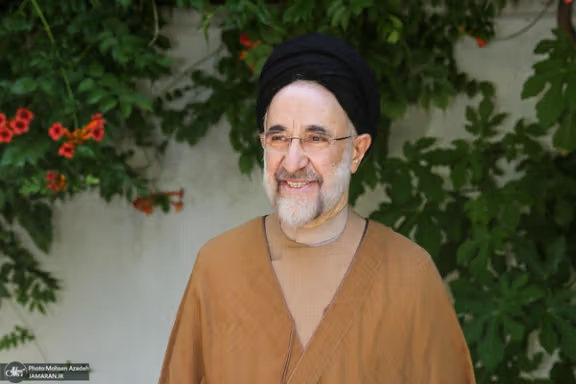
Mousavi’s volte-face can be seen as a milestone in the reformist camp as another bigwig of the movement former president Mohammad Khatami also believes reformism in Iran has reached a deadlock. Mohammad Javad Haqshenas, a prominent reformist figure, said earlier this week that Khatami's statement, which was issued on the 44th anniversary of the 1979 Islamic revolution, should be construed as a premonition for the regime that the Islamic Republic cannot be reformed.
February 11, 2023, marks the forty-fourth anniversary of the establishment of the Islamic Republic of Iran, and many people on social media believe that it is the last time the regime is celebrating the event.
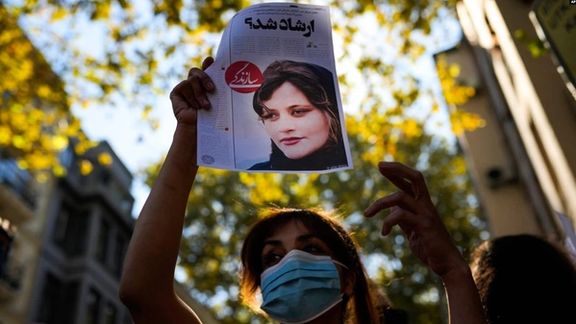
Media affiliated with hardliners in Iran have been outraged by Iran International's report on Wednesday about security agents raping two detained young women.
Tasnim news agency, affiliated to the Revolutionary Guard, quoted a report by the conservative Farhikhtegan daily, which addressed the assault, denying the rape charge.
A letter leaked by a hacktivist group to Iran International on Wednesday revealed details about the rape of two female protesters, aged 18 and 23, by IRGC agents.
Farhikhtegan rejected Iran International's report saying the document was "manipulated and fake".
The paper claimed on its Telegram channel Thursday that “if the military forces commit a crime, they will be dealt with in the judicial organization of the armed forces. Other departments of the judicial system are neither competent nor involved to enter the case.”
This comes as the text of the document shows the case went to the judiciary because the victims complained and it states that the case was sent to “relevant bodies”, but the prosecutor's office has requested that the case be closed.
The daily, however, rejected numerous reports about rape in prisons, including the rape of Armita Abbasi, alleging that no rape had taken place in the prisons of the Islamic Republic during the protests.
Alireza Sadeqi and Alireza Hosseini are two IRGC agents referred to in the letter that admitted to raping the two women, with Sadeqi acknowledging that they detained them near a gas station while on a mission in in western Tehran.
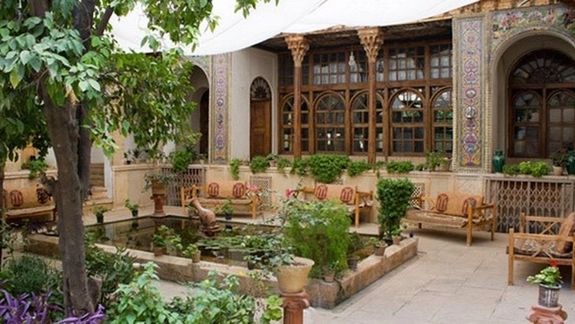
The government’s plans to demolish tens of historic houses in the ancient city of Shiraz to expand Shia shrines has outraged many Iranians.
Media reported earlier this week that residents of the historic houses marked for demolition in the vicinity of the shrines have been given an ultimatum by the authorities and the municipality’s contractor to evacuate immediately as the demolition work was soon to begin. Several of these houses which date back to Zand (1751-1779) and Qajar (1789-1925) periods have been listed as national heritage sites.
The plan to expand the Shah-e Cheragh shrine is meant to transform Shiraz from a destination for historic tourism to a pilgrimage destination, Mohammadreza Javadi-Yeganeh, a professor of sociology at Tehran University tweeted. “[They are] targeting the Iranian [national] identity again [as opposed to Islamic Shiite],” he wrote while criticizing the manner of appropriation of the properties which he said amounted to robbing the owners.
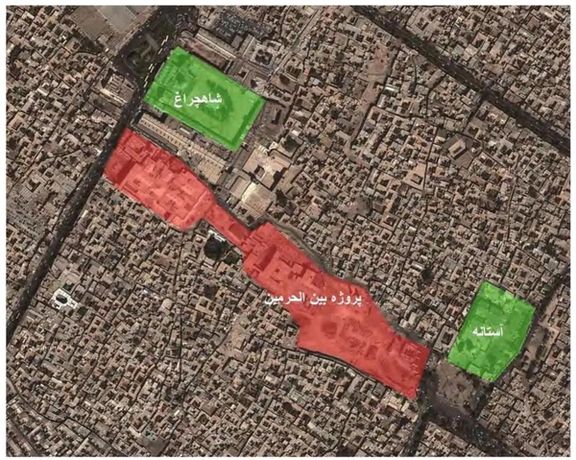
Nasir Farrokh-Mehr who is the secretary of the National Campaign to Save the Historic Structures of Shiraz, said locals are planning to rally Thursday in the area to prevent what they call a cultural disaster.
The campaign had petitioned the minister of cultural heritage Ezzatollah Zarghami last year to order the historic buildings within the confines of the area to be surveyed and listed as cultural heritage before any final decisions were made.
In its online petition which over 17,000 have signed, the campaign said many of the city’s invaluable historic buildings had been destroyed in the past few decades on the grounds that they were not listed and that influential entities had obstructed the listing of the many buildings that fell within the confines of the are to be destroyed to expand the shrine.
Zarghami said last year that the plans to expand Shah-e Cheragh, which were first proposed a few years after the Islamic Revolution of 1979, were to be reviewed by various government agencies. The plans now seem to have been set in motion following President Ebrahim Raisi’s decision during a visit to the city a few months ago to expedite the project.
Etemad newspaper warned Monday that there is evidence that the plan to expand the shrine “to make Shiraz the biggest pilgrims’ destination in the Middle East” would affect 360 hectares of the historic structure of the city.
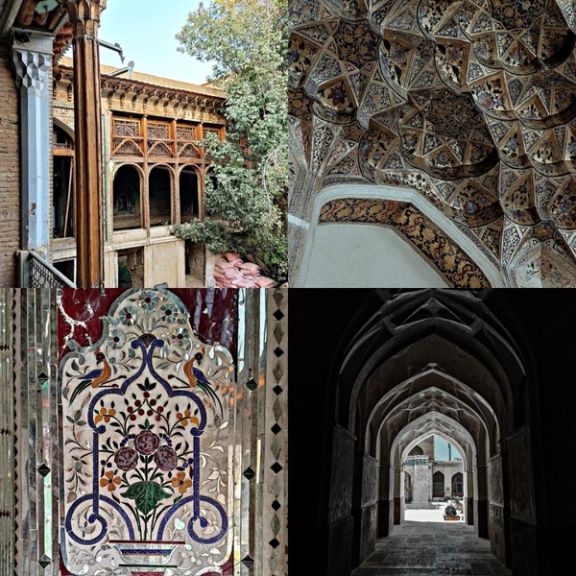
Shah-e-Cheragh is a mosque and the mausoleum of two of the brothers of the eighth Shia imam, Imam Reza, who is himself buried in the northeastern city of Mashhad. The tombs turned into a pilgrimage site in the 14th century when a mosque and theological school were built in their vicinity.
Imam Reza’s shrine has several times been expanded during the Pahlavi era and after the Islamic Revolution and many of the historic neighborhoods around it have vanished. Much of the surrounding neighbourhoods of Shah-e Cheragh have likewise been demolished in the past few decades, as late as four years ago, to build connecting roads and facilities to serve pilgrims.
Shiraz is one of Iran's most popular tourist sites for foreign tourists and Iranians alike. Pasargade and Persepolis, about 60 km to the north of Shiraz, which date back to the Achaemenid period (559 BC-330 BC), and the tombs of two of Iran's most famous poets, Hafez Shirazi (1325–1390) and Saadi Shirazi (1210 – 1291) are among the city’s most visited sites.
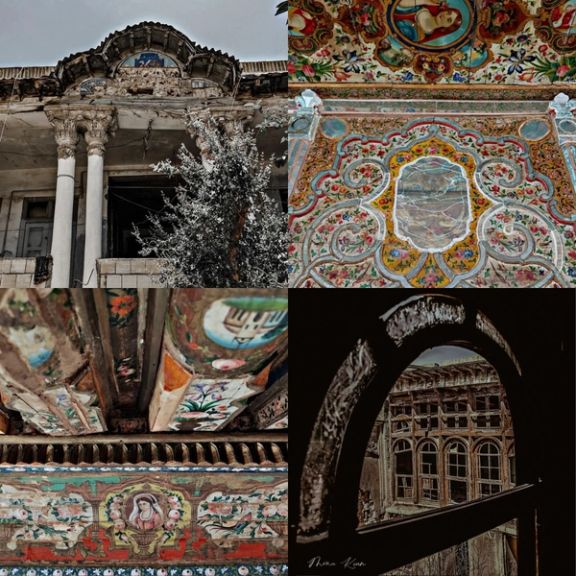
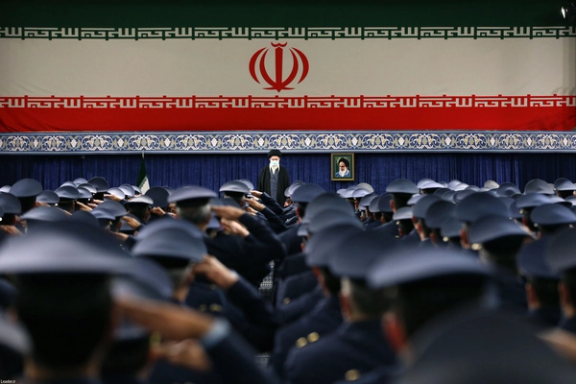
The Islamic Republic of Iran's Supreme Leader Ali Khamenei has for the first time admitted that there are disagreements between the people and the regime.
Khamenei who has been dismissing popular protests as “riots” instigated by “enemies” said in a speech that Iranians should "make sure these differences do not turn into faultiness" that would tear apart the nation.
Nonetheless, Khamenei's state of denial about dissent in Iran appears to continue. He repeated that sowing discord and creating differences is the "enemy's strategy."
"The enemy is determined to bring the Islamic regime to its knees," Khamenei said on Wednesday when tens of Iranian army's air force personnel went to visit him on the anniversary of a similar visit to the founder of the Islamic Republic Ruhollah Khomeini in 1979. The air force then paid tribute to Khomeini in defiance of their allegiance to the Shah, but the visit to Khamenei was not politically or otherwise significant.
He said, "15 years ago, a US President, [presumably George W. Bush] wrote to me in a letter that the United States did not intend to overthrow the government in Iran, but intelligence reports indicated that they were mulling a plot to destroy the Islamic Republic."
Reiterating that "the enemies" were adamant to sow discord and create distrust among the people, Khamenei advised that Iranians need to strengthen their unity to foil that plot. He claimed that the rallies to mark the anniversary of the Islamic revolution will manifest this unity.
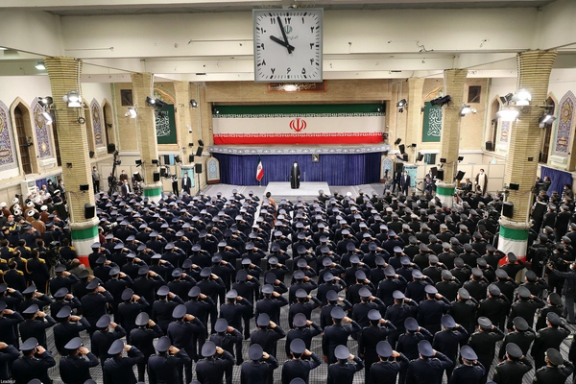
In fact, five months of protests in the streets against the government have left a fragmented society in Iran where trust in the regime is at its lowest point since Khamenei created his ideal all conservative government and barred others from taking part in the 2020 parliamentary and 2021 presidential elections.
Meanwhile, his insistence on the Islamic revolution being alive and kicking was in sharp contrast to months of protests by women and the youth demanding an end to the Islamic Republic. This time there is no doubt that protesters do not want any reforms or concessions. They demand a secular and democratic government and Khamenei is their first target.
But Khamenei sojourns in his own world and claimed that the Islamic Republic is moving forward toward the peaks of its material and spiritual progress. Material progress seems more like a myth as the government has recently decided to sell public assets and properties to finance its everyday administrative affairs. The national currency is at its historic low and inflation is well above 50 percent.
Meanwhile, sociologists and political observers in Iran have said in numerous studies that the generation-Z was the driving force behind the recent protests and most of those who were jailed for taking part in the protests were born after 2000. But Khamenei claimed that the regime has the hearts and minds of the young generation, showcasing a recent regime stunt of having youngsters in a Quran reading marathon.
In another controversial comment, while he has the final say on all matters of state and dictates all policies to the government, he called on unnamed officials to deliver what people need.
Khamenei also called for national unity, while he had earlier ruled out politicians' suggestions for an attempt at national reconciliation by putting an end to the violent crackdown on protesters.